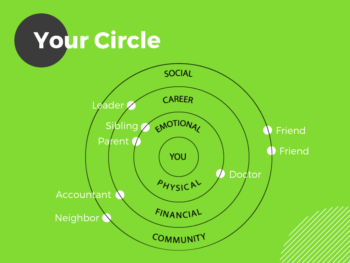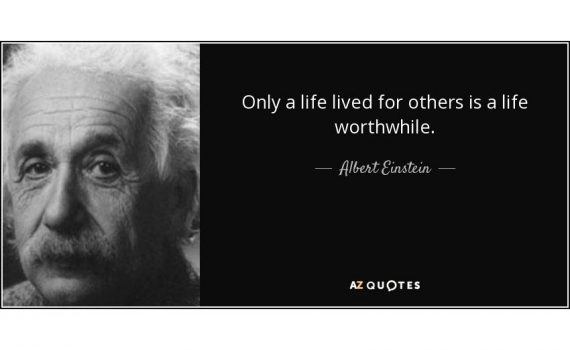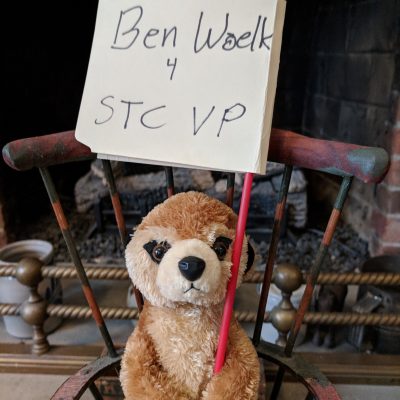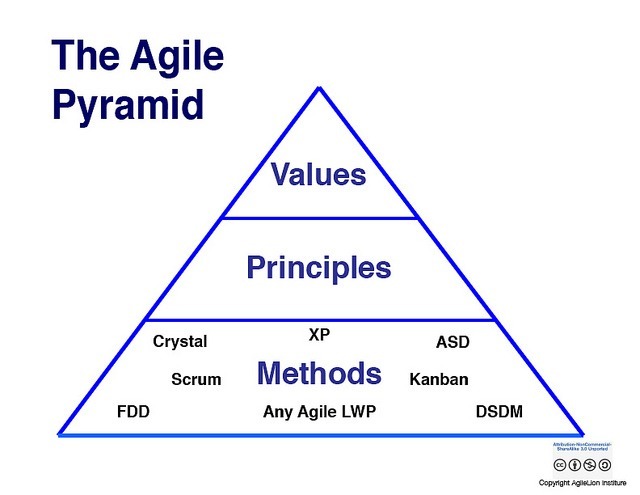
Episode 015: Roxy Greninger–Growing Your Circle
Category:introversion,Introverted Leadership,introverts,Podcast,STC,STC RochesterPodcast: Play in new window | Download
Subscribe: Spotify | Amazon Music | iHeartRadio | Podchaser | TuneIn | Deezer | RSS
Episode 015 Show Notes: Roxy Greninger
Introduction

Key concepts
- Grow Your Circle
- Outgoing introverts
- Unexpected benefits of attending a conference
Quotable
I think that people don’t always have a clear definition of what an introvert is. So if you ask just a random person, what would they picture? They picture someone who’s quiet, maybe shy, definitely afraid of public speaking, and that’s not the case for me.
“What are you doing on this planet? What do you want to leave behind or how do you want to be remembered?” And you kind of start to ask yourself more thought-provoking questions around that. What are your strengths? And then you build upon that circle. So you are at the center of your circle, and then the people that surround you are the various layers of that circle, and the influence that they have on you.
So many people came up and talked to me afterwards and really talked to me during the course of the conference, that I started to get an understanding how important it was for introverts to understand that they were okay. There was nothing wrong with them for being introverts, but also to understand that there were more of them, that there was a sense of tribal group, or a circle in some ways as well.–Ben
Think about different people and the influence that they have on your circle, it could come and go. You could see them once a year, you could see them once in your lifetime, but they leave that resonating impact on that ring of your circle.
By all accounts, we want to be different, we want to be unique, but it’s wired into us to find similarities and develop our tribe. It’s a safety mechanism. It’s just natural that you want to feel similar to others, and not be the outsider.
Resources or Products Mentioned in this Episode
Links
- Follow Hope for the Introvert on Twitter
- Like my page on Facebook
- Support me on Patreon
- Get swag for Hope for the Introvert and Introverted Leadership at Zazzle
Transcript
Ben: Joining us today is Roxy Greninger. Roxy Works for Excellus Blue Cross Blue Shield as a Culture Program Consultant. Roxy describes herself as Texas-born, Oregon-raised, and New York-refined. I met Roxy at the STC Rochester Spectrum Conference where she presented on Growing Your Circle. Roxy has since joined the Society for Technical Communication and is co-Vice President and 2019 Spectrum Conference co-chair. Roxy was also the catalyst for starting the Hope for the Introvert podcast, but we’ll talk about that a bit later. Roxy blogs at www.RoxyLorraine.Com. You can contact Roxy on Linkedin or at RoxyLorraine@Gmail.com.
Ben: Hi Roxy. I’m so excited you’re joining us today. We’ve had some fascinating and far ranging conversations and I look forward to seeing where we go today.
Roxy: Hey Ben. Thanks for having me. I’m excited to be on Hope for the Introvert.
Ben: Absolutely! So Roxy, you’ve mentioned to me that people are often surprised that you’re an introvert. Why is that?
Roxy: I think that people don’t always have a clear definition of what an introvert is. So if you ask just a random person, what would they picture? They picture someone who’s quiet, maybe shy, definitely afraid of public speaking, and that’s not the case for me. So I call myself an outgoing introvert. So for me it’s more–I love being around people, I love talking to people, but it doesn’t give me a charge. It actually drains me. So at the end of the day I need to be kind to myself and have some quiet time for reflection or artwork. Just recharging really. I’d call it recharge my batteries.
[bctt tweet=” People don’t always have a clear definition of what an introvert is. What would a random person picture? They picture someone who’s quiet, maybe shy, definitely afraid of public speaking, and that’s not the case for me.–Roxy” username=”hopeintrovert”]
Ben: Yeah. And that’s pretty typical for an introvert. Needing that time to recharge. It seems to be THE thing that makes a difference between extroverts and introverts. So when did you actually discover or decide that you were an introvert and how did that make you feel? What has the journey been like?
Roxy: It was about eight years ago during an Art of Leadership workshop here at Excellus, and during that time we took a number of assessments to learn about ourselves, which I found to be the most beneficial activity I’ve ever done. You would think, after 30 some odd years, you know yourself, but you really don’t. And having done that assessment, we learned if we were an introvert or an extrovert, our communication styles, which was also very helpful. And our strengths, right? So we use the five Strengths–StrengthsFinders 2.0 to learn about ourselves and how we work with others. So for me it was very affirming to know that I was an introvert, and that I wasn’t weird or that there was something wrong with me, if you will, that I felt so tired or a little withdrawn after extensive periods of time with people. And also to realize that there were other people like me was very affirming.
Ben: Well, that’s awesome.
Roxy:The affirmation that being–finding out that you’re an introvert–has on you, and anytime that I’m sure you, having led presentations on introversion, you’ll probably find or recognize that people come up to you afterwards and say, “Wow! That really meant something to me.” And being in a room full of other people who are similar is so important. Some of my favorite readings are just based on human behavior and why we have that need to feel the same. We by all accounts, we want to be different, we want to be unique, but it’s wired into us to find similarities and develop our tribe. It’s a safety mechanism. It’s just natural that you want to feel similar to others, and not be the outsider.
[bctt tweet=”By all accounts, we want to be different, we want to be unique, but it’s wired into us to find similarities and develop our tribe.–Roxy Greninger” username=”hopeintrovert”]
Ben: Yeah, I think that makes a lot of sense. And it’s interesting because I first presented on introversion–I first presented several years ago with a friend of mine–but I presented on it back in the spring of 2016 and I had that same experience that you’re talking about. So many people came up and talked to me afterwards and really talked to me during the course of the conference, that I started to get an understanding how important it was for introverts to understand that they were okay. There was nothing wrong with them for being introverts, but also to understand that there were more of them, that there was a sense of tribal group, or a circle in some ways as well.
[bctt tweet=”So many people came up and talked to me afterwards and really talked to me during the course of the conference, that I started to get an understanding how important it was for introverts to understand that they were okay.” username=”hopeintrovert”]
Ben: Now, when you spoke at Spectrum, you actually spoke during our leadership program and you spoke on Grow Your Circle, which is something that you’ve been working on. Can you talk a little bit about that? It was very well received by the attendees at the conference and I think it would be exciting for them to know what you’re working on.
Roxy: Yeah. I’m fascinated again, by development of people. I’m starting with myself back in 2010. So this idea came to me when we talk about developing your–growing your tribe. (Building your tribe is, I think, one saying in the community.) Networking is another term that people use. And so what I started to find out about wellness and well being, when you boil everything down, it really needs to start with you. You need to know yourself and you need to know what drives you, in order to know what motivates you, in order to succeed and feel fulfillment and purpose in this life. So when I spoke, the grow your circle is just that you start with you and you ask yourself, it sounds like an easy question, but it’s a really hard question to answer…
Roxy: “What are you doing on this planet? What do you want to leave behind or how do you want to be remembered?” And you kind of start to ask yourself more thought-provoking questions around that. What are your strengths? And then you build upon that circle. So you are at the center of your circle, and then the people that surround you are the various layers of that circle, and the influence that they have on you. So you’ve got another ring of of emotional and physical, which is met by–you have doctors and specialists that are helping with your physical well being. Maybe you have a fitness coach, you’ve got emotional support from your parents, from your siblings, your family, and others. And then there’s another layer of the ring which is career and financial stability, which aren’t necessarily the same, but they certainly can go hand in hand whether you’re self employed or employed by someone else. And whether you’re wealthy or not wealthy, it’s your comfort level with your financial situation, your financial wellness.
[bctt tweet=”What are you doing on this planet? What do you want to leave behind or how do you want to be remembered?” username=”hopeintrovert”]
Roxy: The final ring is social and community. And that’s the biggest ring. That’s where your friends are. That’s where your neighbors are. So when you think about different people and the influence that they have on your circle, it could come and go. You could see them once a year, you could see them once in your lifetime, but they leave that resonating impact on that ring of your circle. It’s also important to think about if you’re trying to hang on to people in your circle because you feel like you’re required to or obligated to. Are they really helping or having a positive influence on you, or are you able to just say they’ve brought me joy and, and maybe your paths–it’s time to part ways, right?
[bctt tweet=”Think about different people and the influence that they have on your circle, it could come and go. You could see them once a year, you could see them once in your lifetime, but they leave that resonating impact on that ring of your circle. ” username=”hopeintrovert”]
Roxy: So that’s really helpful when you have that circle fully developed. You’re able to maximize your potential. And other people struggle with adding more folks to their circle. Right? So what I spoke about at the conference was there are other ways to grow your circle. You can follow a favorite author or celebrity and they influence you, right? So if you watch TV or if you read books, or if you follow a celebrity on social media, Instagram, Snapchat, Facebook, Twitter, they buy a product and you find yourself buying a product, you better bet you’re being influenced by them. It’s things like that to think about who’s influencing you and is it a positive influence, is it an influence towards your purpose and what you’re trying to accomplish in this life and it’s going to fluctuate.
Ben: You know, I love the idea of the resonating impact. It could be for good or for bad as well.
Roxy: Absolutely!
Ben: But it’s really interesting thinking about just that ongoing sound. Essentially you are having an impact in your life because they’ve–hard to find the words around this, and I think of it more of a pebble. Throwing the pebble in the water and the ripples spreading out. But this is more of the sense of they’ve struck the bell and the peal just kind of continues for awhile.
Roxy: Absolutely!
Ben: So I think it’s a pretty cool analogy and an interesting way to look at it.
Roxy: It’s very helpful to realize that this is not limited to the work life or the personal life, right? This is you. This is your circle. This is 24/7. I think a lot of development programs focus on you within the walls of your workplace or they focus on, you know, self help you outside the workplace. And that’s where they fall short, that you’re not looking at your overall self. And a lot of people are in an unhealthy situation, whether it’s mentally unhealthy or physically unhealthy. They’re working themselves so hard that they’re finding that they have heart disease or stress or anxiety, and all these things, you know catch up to you. And I think in the presentation I referenced, just like when you’re on the airplane and the flight attendant tells you that you have to put your mask on yourself first. If you want to help anybody else, you really do.
Roxy:That rings true with grow your circle. Like you need to look at yourself first and not think about, you know, what decisions you’ve made that have been influenced by, let’s say your parents, right? That’s sometimes the hardest one because they’re your parents, or other influencers like your boss–are you doing work that you love doing or are the assignments that you’re doing, you’re doing them because that’s what you’re being told to do? Or do you feel that you are bringing a passion and meaning to purpose? To the world? So that’s where people get hung up in they find a little depression or demotivation with particular jobs. And that for me overlaps with my work at Excellus, which is why I love thinking about these things outside of the workplace as well as inside the workplace.
Ben: I felt like it was a very well received presentation and it’s funny because I connected with you at the conference and we did a follow-up conversation later. There just seems to be so much of interest to discuss together. But, you’ve also stepped into a leadership role in an organization that you had not had any real familiarity with prior to that. And I’m curious about why you agreed to do that.
Roxy: Yeah. I was–I was shocked. I didn’t know that STC was a thing [laughing]. So I was–I was delighted. I was asked by one of the other co-chairs if I had some content that I’d be willing to present, and I was kind of excited to try and be given the opportunity to try something new, try some content that I hadn’t presented before and this was that opportunity. And after the presentation, I admittedly was kind of surprised there weren’t a lot of questions in the room, but I should have guessed that it was probably primarily a room full of introverts. Each one of those guests came up to me afterwards to say in which ways the presentation connected with them and/or resonated with them. And I was blown away and I’m just shocked that I didn’t know that the Society for Technical Communication existed.
Roxy: And as I had the opportunity to sit through the different presenters, they were speaking my language, they’re reading the same books that I read and they’re talking about technologies that I’m interested in. Sometimes I find myself in a situation at work where my colleagues–they appreciate that I read as much as I do or that I have information about new technology coming out. But you know, that that’s me. They look to me and say, “That’s great. That’s Roxy.” But here’s a whole bunch of Roxy’s, right? I mean, it was–it was unique. We’re all different, you know, it was, it was fulfilling and it was energizing to be with people that had another layer of similarities and wanted to connect with me.
Roxy, I think I had like 20 LinkedIn requests the first day and it’s such a diverse group of people that I just walked away feeling tired, yes, from being around people, but also very energized by, you know, the amount of input and I’m learning that those are a few of my strengths out of the five strengths. So for me that fulfilled a piece of my strengths, that I look for. And so when it was brought to my attention that there was an opportunity to be a leader in the role, I–I hesitated at first because I don’t want to just jump in and have too many things that I’m juggling, but I really thought that I might be able to bring a different perspective and diversify the chapter thinking a little bit, because I do have a marketing background. I’m not a traditional technical writer. I’ve written documentation for our company– training documentation. I do have an IT degree but I’m not in an IT role now. So I thought that that would bring a different perspective to the chapter and the way we do things and maybe just help lead some positive change.
Ben: Yeah, I think there’s some great opportunities there and it’s funny you talk about how you were energized being around the people and still very tired at the end of the day from doing that. But that’s kind of been my experience with this organization and another organization I’m involved with, that as I’ve established relationships, the opportunity to essentially hang out with that group of people is just great and I find that I don’t want to give that up, and I end up being totally, totally exhausted by the time I finally do. But it’s one of those things, It’s probably not the right analogy, but a candle can only burn brightly for so long and then you need to–really terrible analogy, and that it needs to rest for awhile–which again, terrible analogy. So we’re replacing the wick, whatever you want to call it, needs both. Obviously. a flashlight needs to recharge the batteries and that’s the introvert analogy that usually works with that!
Extras



 Today
Today











